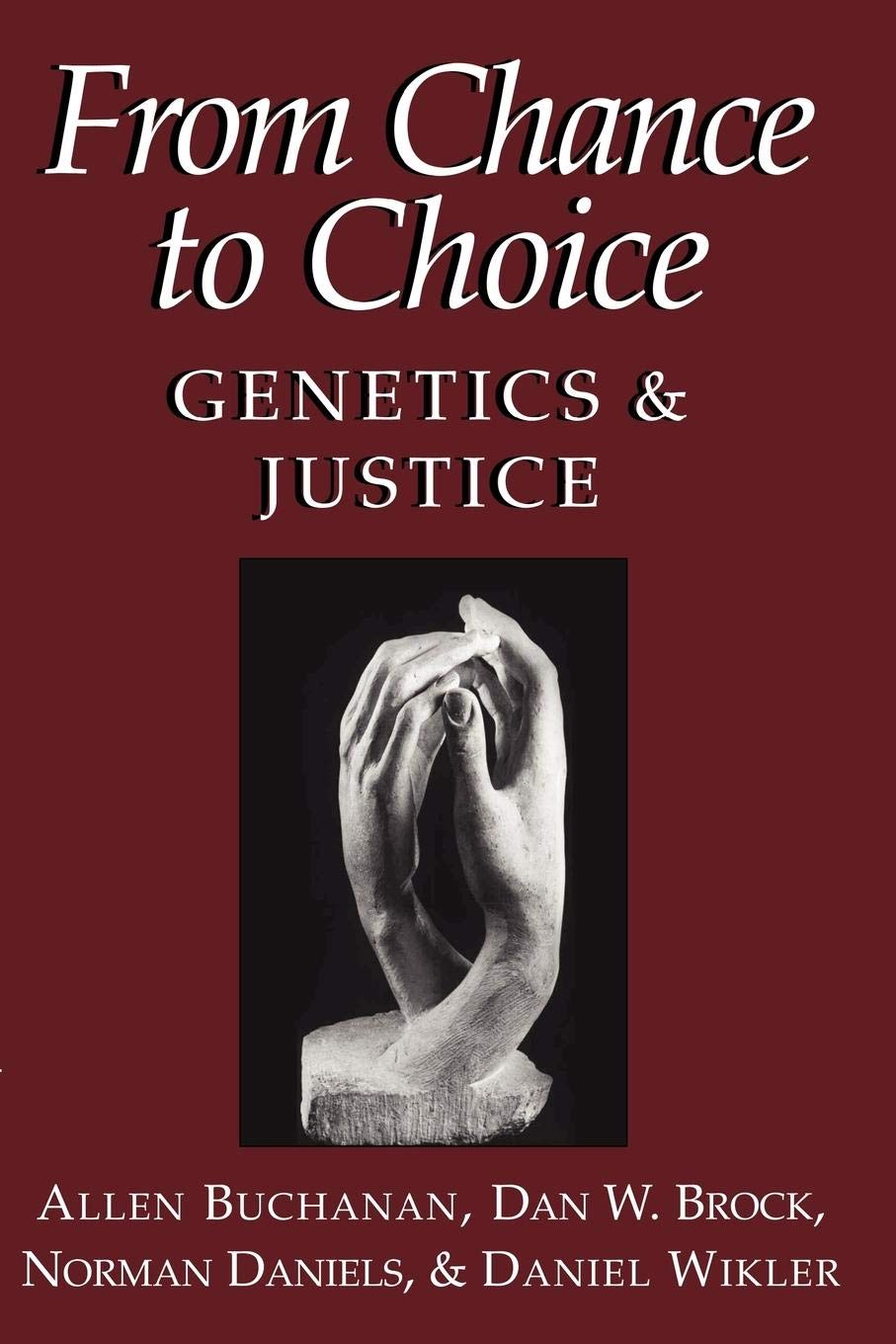Customer Services
Copyright © 2025 Desertcart Holdings Limited


Full description not available
T**K
Interpreting Chance to Choice for the Average Joe?
I would like to suggest that this book is a landmark in the intellectual history of the human race on a par with Rousseau's Social Contract and Darwin's Origin of the Species. This book is a great achievement for the authors (a "dream team" of practicing bioethicists). I had just enough training in ethics (B.A. Michigan 1982) to understand the book and I enjoyed it immensely. I wonder, however, whether this book would probably be inaccessible to many readers who should read it. I expect we will need a really thorough set of "Cliff Notes" (or "Genomic Ethics for Dummies"), since this book seems designed to be read by the modern ethical philosopher, moreso than the educated members of the public. Perhaps the reviewers on Amazon.com could provide such a service for the world. I was fortunate to have an advance peek at the book through a conference held in San Diego in January, so I have had some time to reflect on the book's implications. This book made me intrigued about the prospect for some people using the genome to have better babies (see the book on Designer Babies by Dr. Gosden for the "how to" on in vitro fertilization). Under secular ethical principles, as outlined in this book, do parents have an ethical obligation to use genomic information to have a "healthier" child? If so, what are the ethical boundaries of that obligation? NPR had a report some time ago about some achondroplastic dwarf parents who wanted to choose a child with their genetic "defect" --- is that sometime ethically prohibited by the principles in this book? The parental choice issues raised by this book strike me as the issue ripe for controversy. These are the fundamental questions that this book raises for every member of the human race who plans to procreate (or already has procreated).My kids will be entering the first generation where prospects for improving admission to the aristocracy (e.g. to an Ivy League school) arguably could begin at the moment of conception (if in vitro, aided by genomic data to screen embryoes). I find that interesting and a little bit alarming.Chance to Choice also addresses myriad ethical issues (those relating to "distributive justice" in the mode of John Rawls' Theory of Justice) that will spin off from the genome project. They suggest that genetic discrimination (the "genetic ghetto") may arise if we are not careful about how this information is used. For anyone planning to make a living from the genome, some understanding of this book is essential to their success in business (I am an attorney involved in biotech issues and I think that this book point to (but does not map out) the boundaries of what companies can do with the genome).My EMail is [email protected] if anyone interested in discussing this book's implications further. I think that people will be talking about this one until the talking, bipedal genetically enhanced, vegetarian activist cows come home sometime in the next hundred years (just kidding... ;).I plan to buy some extra copies on Amazon.com to give away or mark up with highlighters (those parts I need to read many times to really understand). It really is a great and timely book.Tom
F**E
An excellent account of how eugenics has gone from being seen as an evil to being acceptable
This book is dense and intellectually rigorous. It allows the reader to understand the history of eugenics - how the concept has been shaped and used by many different people and many different agendas over the last two hundred years. My only concern is that it lacks an understanding of the implications of genetic screening and enhancement in the real lived world - that while it may argue there a few ethical and "justice" hurdles in the way of using the knowledge gained from the study of genetics - it does not account for how such changes would impact the lives of real people. It is worth reading however because it demonstrates how easily we have come to accept the ideas put forward by geneticists as to the benefits of genetic screening and illustrates the assumptions many geneticists make about the lives of people disability. That is that many (not all) but many are better off not lived. And that the emphasis should be on prevention rather than cure.
A**R
Ethics, Eugenics and the human genome
This book addresses all of the neccessary details of the social ramafications involved with our knowledge of the human genome. In this book, the heart wrenching accounts of America's eugenic movement are powerful enough to move anyone to become actively involved in the issues at hand. A real eye opener, one which makes it painstakingly clear that we are not prepared to deal with the information that we have aquired about ourselves and eachother.
M**S
Historical book
This book is detailed and comprehensive, and more important: it makes history.It has been quoted in tens if not hundreds occasions.Although I purchased it for academic purposes, every reader with or without scientific of philosophic background, will find it interesting and mind challenging.
Trustpilot
3 weeks ago
1 month ago